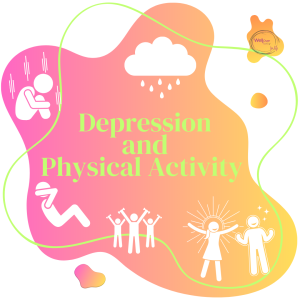
Depression is a prevalent mental health condition affecting millions worldwide. Characterised by persistent sadness, lack of interest or pleasure, and various physical symptoms, depression can severely impact one’s quality of life. While traditional treatments like medication and therapy are effective, incorporating exercise into your routine can be a powerful complementary approach. Here’s why exercise is a crucial component in managing depression and how you can get started.
Why Exercise Matters
Exercise offers multiple benefits for those dealing with depression:
- Mood Enhancement: Physical activity increases the production of endorphins, often referred to as “feel-good” hormones. These chemicals interact with brain receptors, reducing the perception of pain and triggering a positive feeling in the body, similar to that of morphine.
- Reduced Symptoms: Regular physical activity can decrease symptoms of depression. Studies show that even low levels of exercise, such as 30 minutes of walking per day, can significantly reduce depressive symptoms.
- Improved Sleep: Depression often comes with sleep disturbances. Exercise helps regulate sleep patterns, allowing for more restful and restorative sleep.
- Boosted Self-Esteem: Achieving fitness goals, no matter how small, can enhance your self-esteem and provide a sense of accomplishment.
- Social Interaction: Group exercise activities can reduce feelings of isolation and loneliness by providing a social network of support.
Getting Started with Exercise
Here are some tips to incorporate exercise into your routine:
- Start Small: Begin with short, manageable sessions of 10-15 minutes and gradually increase the duration as you build stamina and confidence.
- Find What You Enjoy: Whether it’s walking, cycling, swimming, or yoga, choose activities that you find enjoyable. The key is consistency, and you’re more likely to stick with something you love.
- Set Realistic Goals: Setting achievable goals can keep you motivated. Celebrate your progress, no matter how small.
- Incorporate Variety: Mixing different types of exercise can prevent boredom and work different muscle groups, providing a balanced fitness routine.
- Seek Support: Join a class or find a workout buddy. Social interaction can enhance the benefits of exercise and keep you accountable.
- Consult Professionals: If you’re unsure where to start or have specific health concerns, consult an Accredited Exercise Physiologist who can tailor a program to your needs.
How an Exercise Physiologist Can Help
Exercise Physiologists are more than just fitness professionals; they are specialised in creating comprehensive plans to support both physical and mental health. Using evidence-based information from the latest research, they ensure that your exercise prescriptions and strategies are effective and up-to-date. Here’s how they can assist you:
- Personalised Exercise Programs: Tailored to your specific needs and goals, these programs ensure you’re doing the right exercises at the right intensity.
- Motivational Strategies: They can help you set realistic goals and provide ongoing support to keep you motivated.
- Mindful Practices: Incorporating mindfulness techniques such as breathing exercises can enhance the mental health benefits of physical activity.
- Behavioural Strategies: Techniques to improve compliance and integrate exercise into your daily routine, making it a sustainable part of your lifestyle.
- Holistic Approach: Considering all aspects of your health, including physical, mental, and emotional wellbeing.
Ready to take the first step towards a healthier, happier you?
Contact us today to learn more about how exercise can be an integral part of your mental health management plan. Let’s work together to create a routine that fits your lifestyle and helps you thrive.

